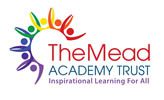The Curriculum: Religious Education
Religious Education is unique in the school curriculum in that it is neither a core subject nor a foundation subject but the 1988 Education Act states that ‘Religious Education has equal standing in relation to core subjects of the National Curriculum in that it is compulsory for all registered pupils’.
Religious Education is taught in our school because it makes:
“a major contribution to the education of children and young people. At its best, it is intellectually challenging and personally enriching. It helps young people develop beliefs and values, and promotes the virtues of respect and empathy, which are important in our diverse society. It fosters civilised debate and reasoned argument, and helps pupils to understand the place of religion and belief in the modern world”. (RE: realising the potential, Ofsted 2013).
The aims of our RE, using the Discovery RE Scheme of Work
Discovery RE meets the requirements of our locally agreed syllabus and is aligned to the non-statutory guidance described above.
By following Discovery RE we intend that Religious Education will:
- Adopt an enquiry- based approach as recommended by Ofsted, beginning with the children’s own life experience before moving into learning about and from religion
- Provoke challenging questions about the meaning and purpose of life, beliefs, the self, and issues of right and wrong, commitment and belonging. This develops pupils’ knowledge and understanding of Christianity, other principal religions, and religious traditions that examine these questions, fostering personal reflection and spiritual development
- Encourage pupils to explore their own beliefs (religious or non-religious), in the light of what they learn, as they examine issues of religious belief and faith and how these impact on personal, institutional and social ethics; and to express their responses
- Enable pupils to build their sense of identity and belonging, which helps them flourish within their communities and as citizens in a diverse society
- Teach pupils to develop respect for others, including people with different faiths and beliefs, and helps to challenge prejudice
- Prompt pupils to consider their responsibilities to themselves and to others, and to explore how they might contribute to their communities and to wider society. It encourages empathy, generosity and compassion
- Develop a sense of awe, wonder and mystery
- Nurture children’s own spiritual development
